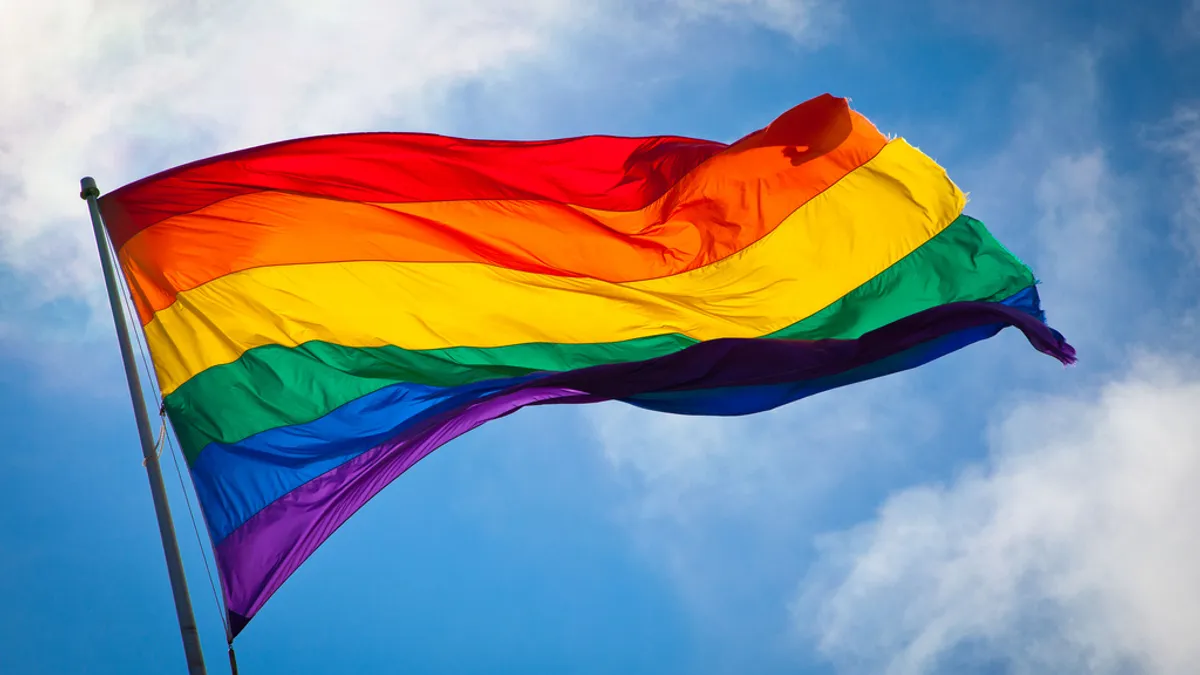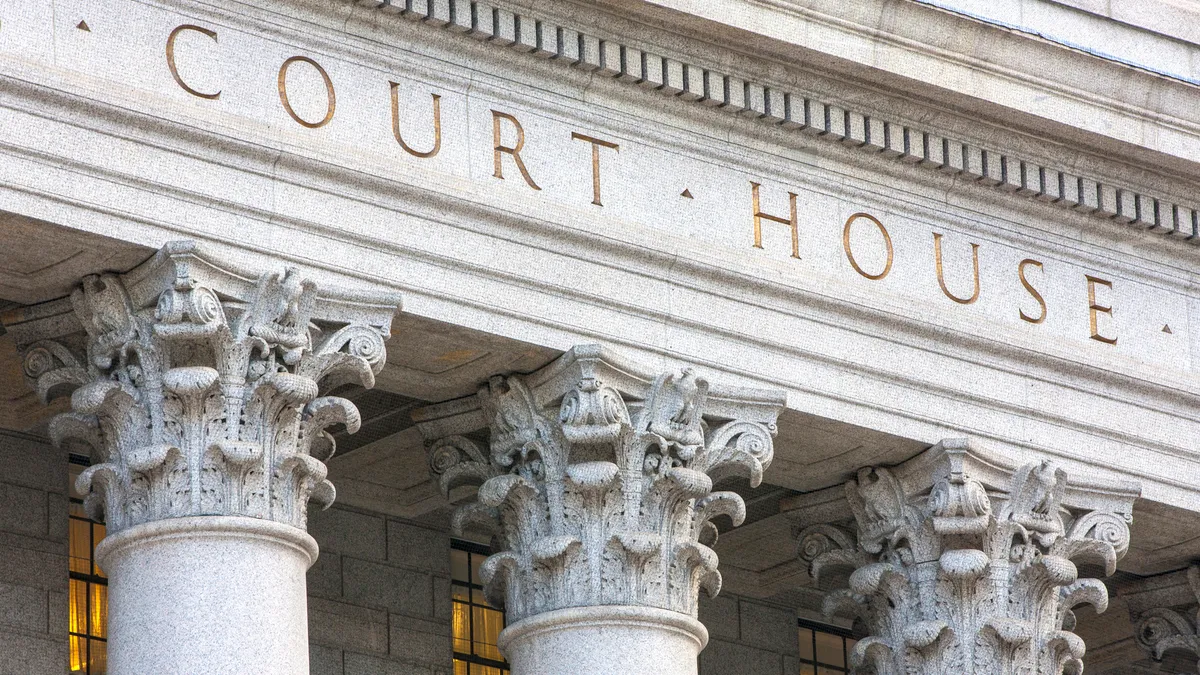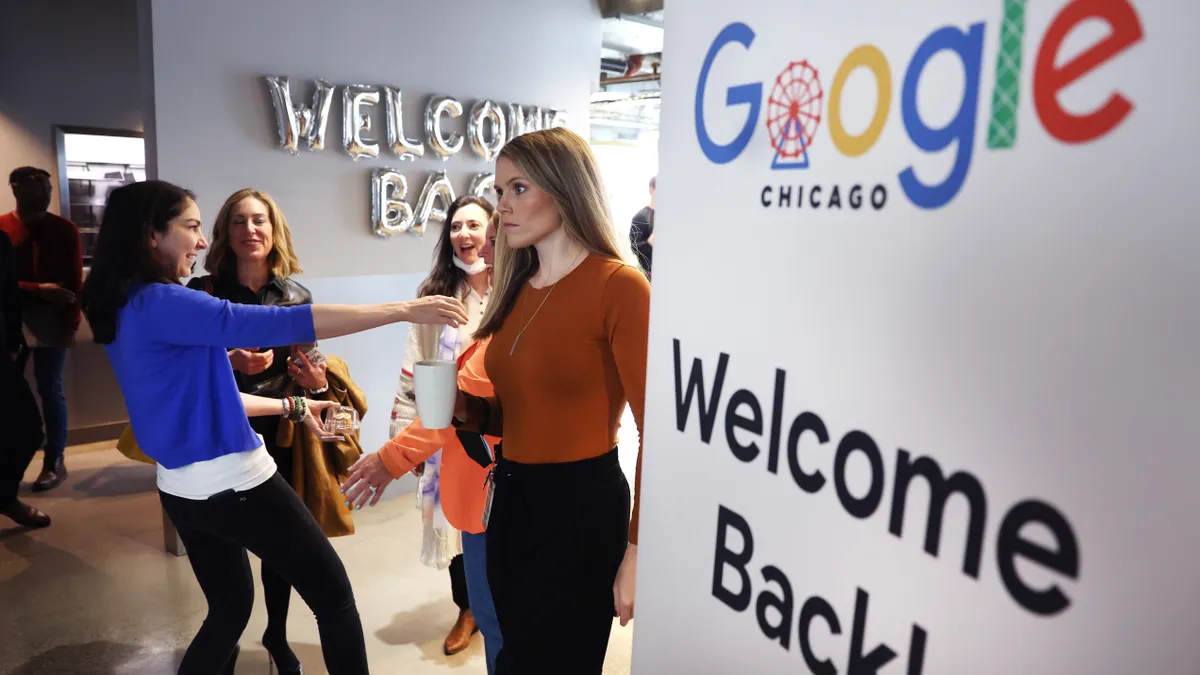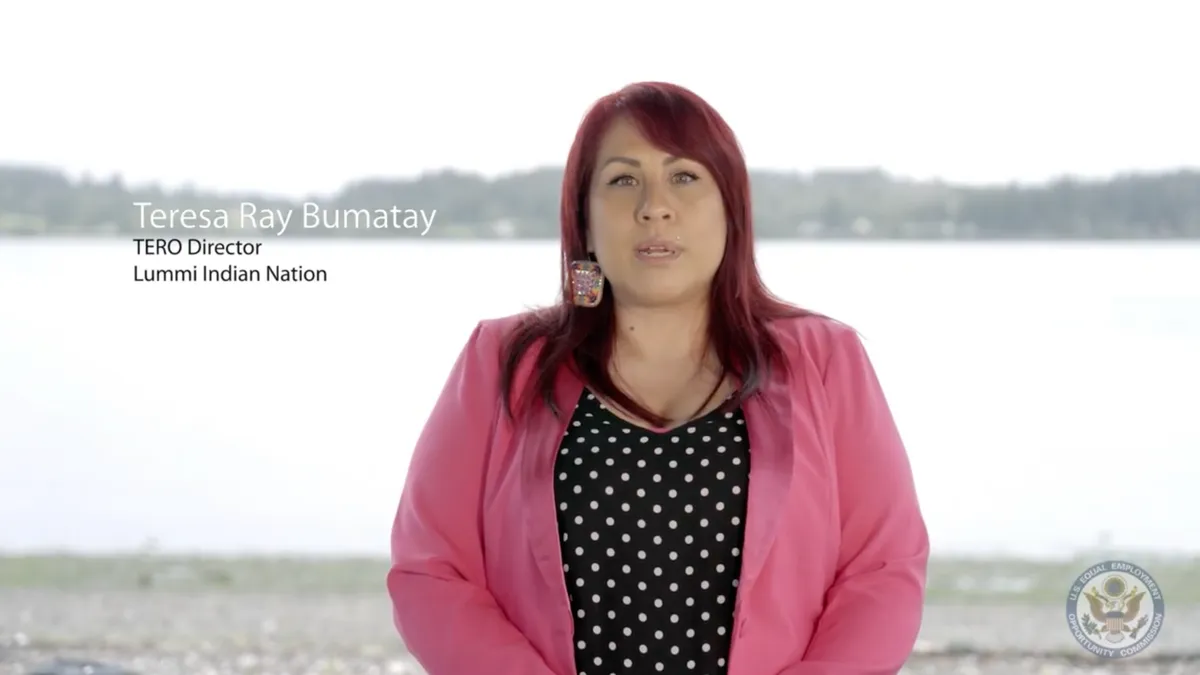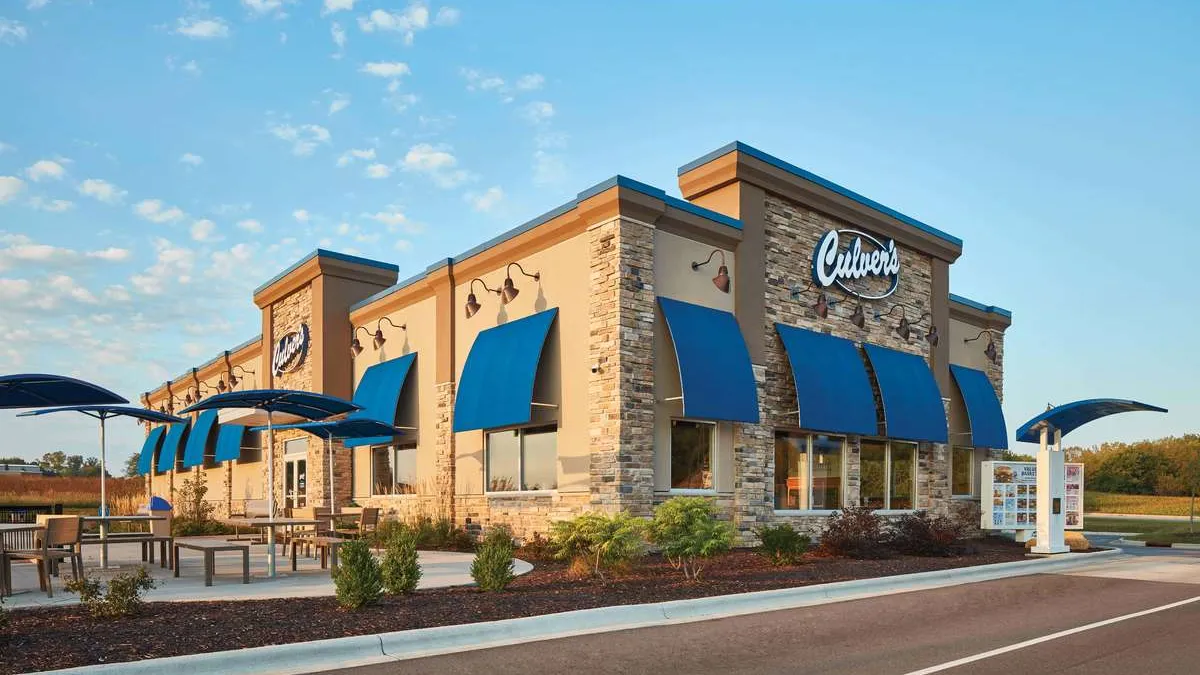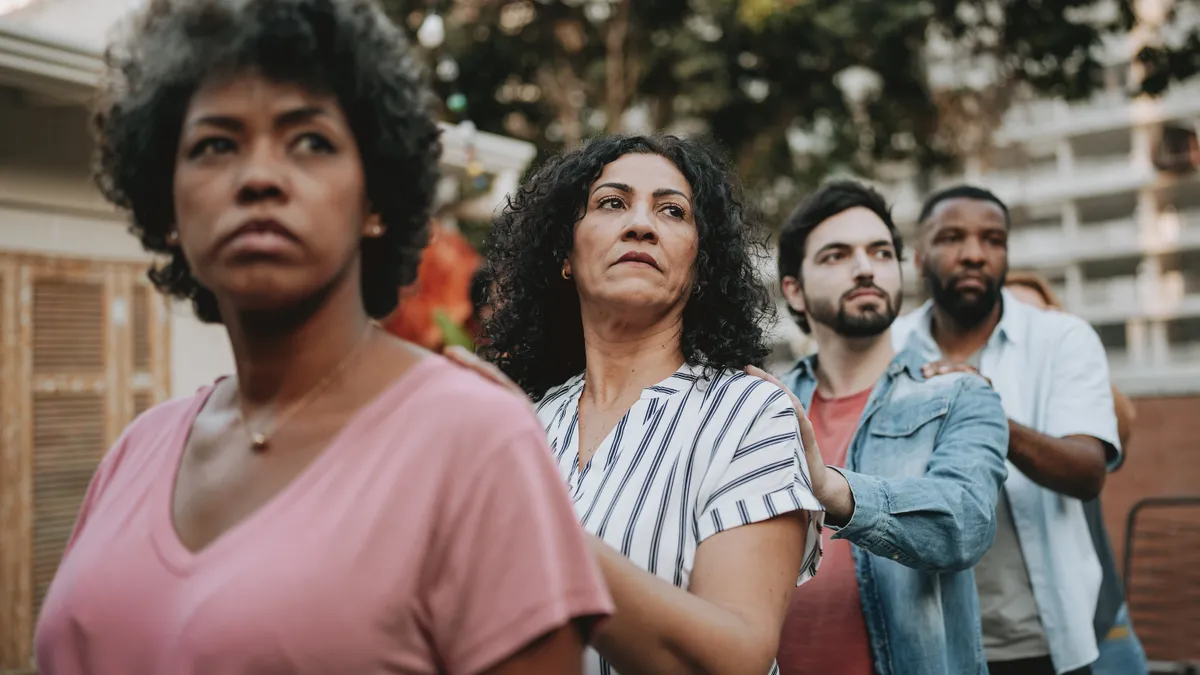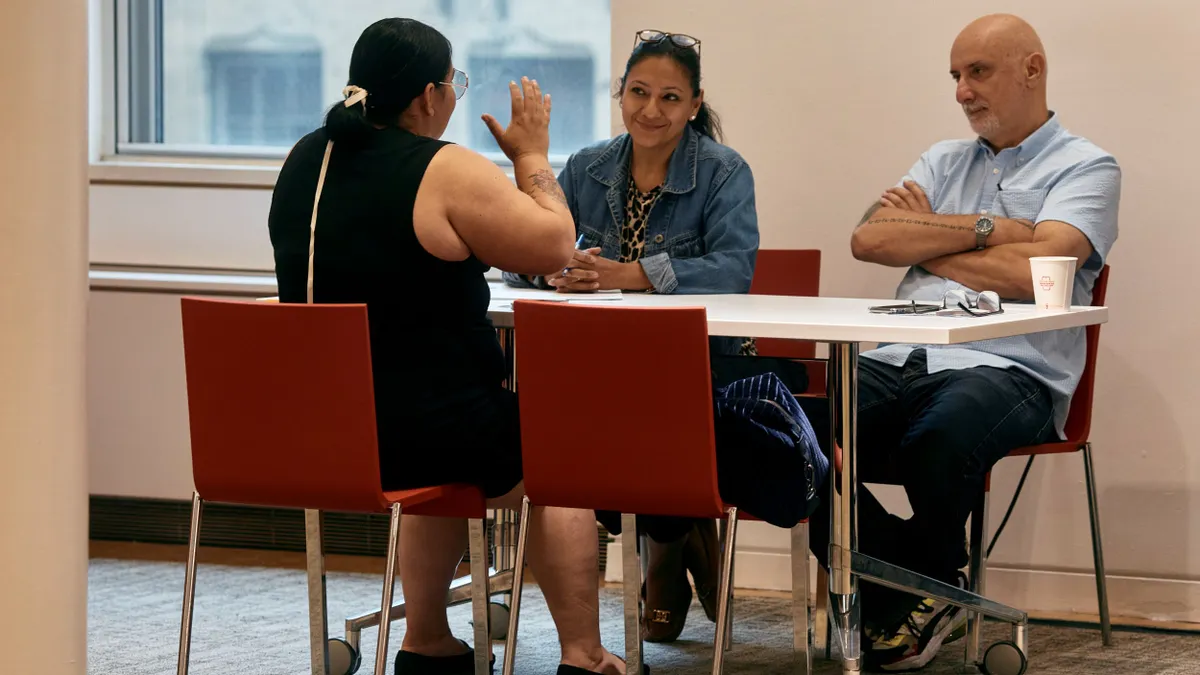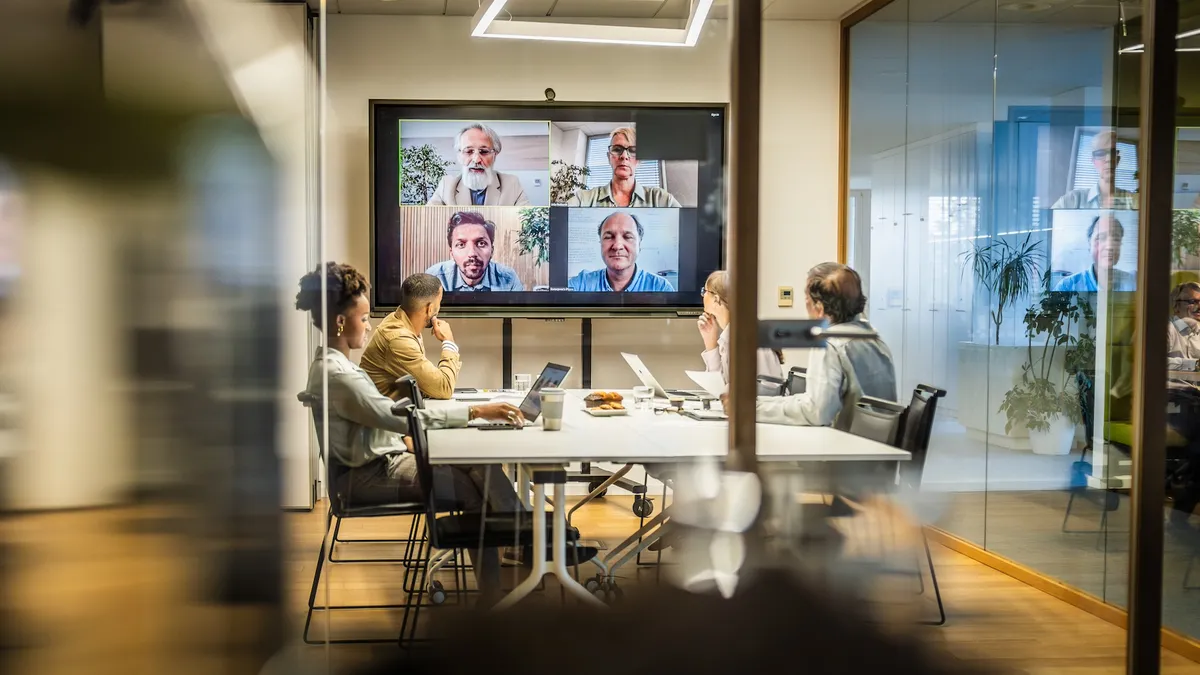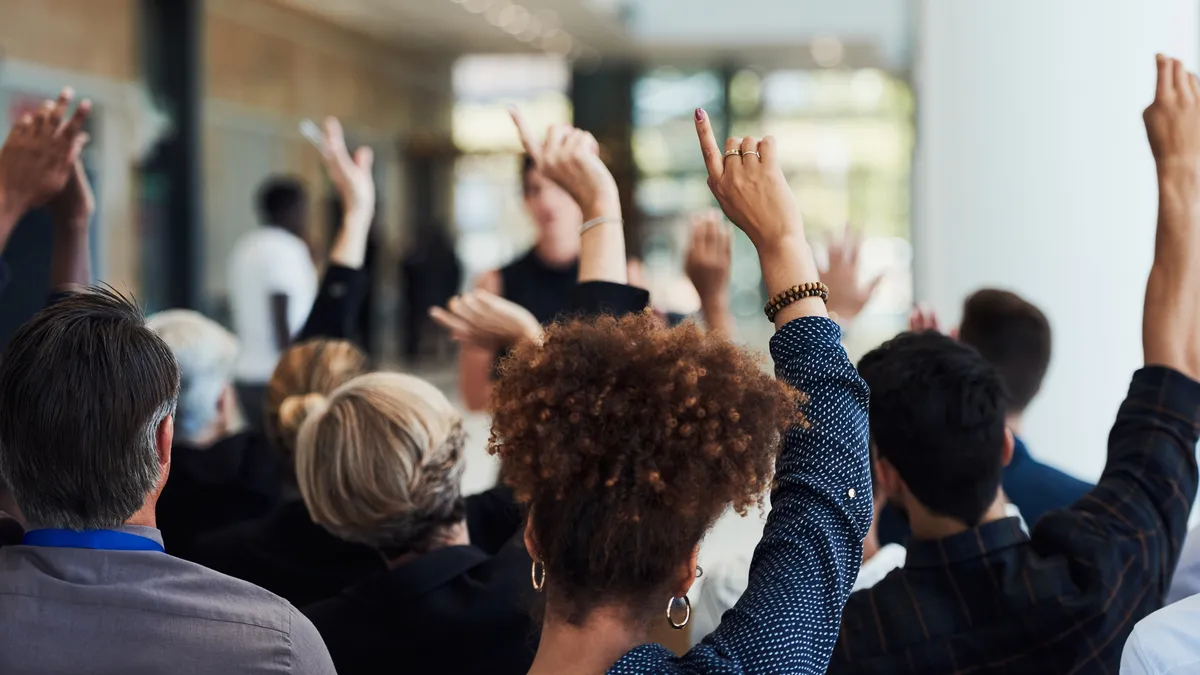Every June, many companies create events to celebrate the civil rights achievements and acceptance of the LGBTQ community. However, as telework remains common amid the COVID-19 pandemic, annual celebrations will need to pivot to a virtual environment.
Pride, Fidelity's employee resource group (ERG) for its LGBTQ+ community and allies, founded in 1999, will celebrate its members during the company's first-ever virtual Pride month.
"Typically when we're planning for Pride month, we start as early as February," Cate Ashley, senior user experience designer for enterprise cybersecurity at Fidelity, and co-lead of the Pride ERG, told HR Dive in an interview.
In February, the Centers for Disease Control and Prevention advised companies to begin telework to prevent the spread of COVID-19 — indefinitely. So, Fidelity's Pride ERG, taking a research-based approach to creating a month-long program, decided to focus on producing a virtual celebration, Ashley said.
"We decided to pivot because it's almost easier to take something that's virtual and make it in person, than the other way around," they said.
Using different mediums to share the message
The group wanted to "make sure everything wasn't a Zoom meeting," so they incorporated a variety of different mediums to prevent event fatigue, Ashley said. There is an event scheduled for each week of June. Two live events will take place during the workday on separate weeks. Meanwhile, other events such as a virtual art tour, an informative article and pre-recorded videos, can be accessed at an employees' leisure, they said.
One event, at members' request, is a livestream of Pride's "Out and Proud" podcast series. The episode will be a conversation with a Pride member on their experiences with intersectionality, allyship, queer representation and visibility, according to Fidelity.
"One of our members is a podcaster on the side, so he was able to really volunteer his time, take the lead on that," Ashley said.
The podcast series has been an effective way to connect members and allies across the organization, from entry level to senior leadership; "We try to mentor and reverse mentor each other."
Allyship
Though many employers have committed to diversity, equity and inclusion initiatives to support LGBTQ+ employees, there's still more work to do, according to research.
More than half (53%) LGBTQ+ employees who responded to a 2019 Glassdoor survey reported experiencing or witnessing anti-LGBTQ+ comments by co-workers. In addition, 68% of surveyed LGBTQ+ employees, and half of all employees surveyed, said their companies could make a greater effort to support LGBTQ+ employees and allies.
"It's critical that our leaders are allies," Ashley said. "We work hard to make allyship actionable, and as easy as possible."
A lot of senior leaders at Fidelity volunteered to help the ERG compile best practices on what has worked well for them in regard to allyship, Ashley said; "And they've just been phenomenal leaders in educating other allies and taking that burden off the community."
ERGs and intersectionality
Intersectionality or the recognition of employees' multiple identities is pivotal to inclusion and diversity in the workplace, according to a 2019 study from Bentley University's Gloria Cordes Larson Center for Women and Business. The study described intersectionality as a combination of identities that include racial and ethnic identity, sexual orientation, ability/disability, age class status, veteran status, cognitive diversity and religion.
Traditionally, when joining an ERG, it was "looked at as people putting themselves in a box," Ashley said. "But really, it's all about intersectionality," they added.
Fidelity's Pride LGBTQ+ ERG has more than 3,800 members company-wide, operating with regional chapters around the country and abroad, according to the company. The ERG has the defined goal of providing education and resources for the queer community, Ashley said. However, "we understand the queer community has different backgrounds, roles and responsibilites," they said. "So, connections with our fellow ERG co-chairs [at Fidelity] are really important on a monthly basis to ensure that all of our messaging is highlighting and celebrating the intersections of our ‘separate communities'. They're definitely not separate at all."
In creating a virtual Pride month celebration, the LGBTQ+ ERG implemented best practices shared by other Fidelity ERGs that have conducted virtual events. The company has a total of six ERGs from underrepresented communities.
"They were able to give us a little heads up on what went well, and work worked better than they had expected," Ashley said. "So, we were able to leverage those learnings in preparation. And, we're looking forward to doing the same — sharing out those best practices and areas of opportunity for improvement."



